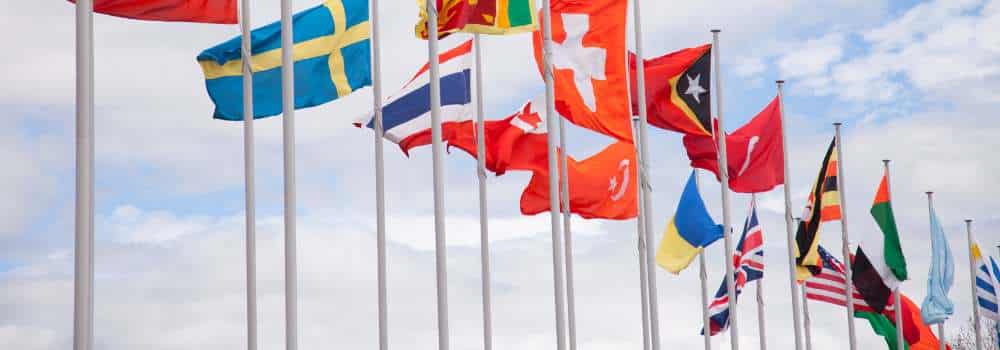Changing Course
Share this blog
Latest Maritime Vacancies
Credit Risk Analyst – London
Commercial Pricing Analyst – London
Marine Superintendent (Chemical Tanker) – Singapore
Technical Superintendent – Towage – Australia
Shipping Solicitor – London
An analysis of Allowances and Nationalities in the maritime sector

As secretariat to the Maritime HR Association, Spinnaker are able to provide detailed reports on factors such as ‘Nationalities’ and ‘Allowances’ in the maritime sector.
These reports are made up of data which covers over 34,000 employees in shore-based shipping positions worldwide and are distributed to members of Spinnaker’s Maritime HR Association who participate in the annual salary survey.
Key findings from the reports when it comes to Nationalities include:
Danish nationals now represent the highest percentage at Executive Leadership levels (14%), overtaking British nationals (12%). Indian nationals dominate Managerial and Director levels, making up 19% of managers and 17% of directors globally.
When it comes to Technical & Marine, Safety & Quality roles, Indian nationals hold a third of all positions in this category, largely in Professional and Senior Professional roles whilst Norwegian nationals have the highest proportion at Director/Head of Level roles (11%), closely followed by Dutch and Americans.
Chartering & Freight Trading data is also analysed and we can see that British and Danish nationals hold the highest share of jobs in the Chartering function (23%) and whilst German, and Singaporean nationals dominate Freight Trading (13%, and 11% respectively). Italian nationals have the highest percentage at Head of/Director levels in Freight Trading.
Next up is Commercial Operations where Indian nationals fill 21% of commercial operations positions, with 33% at the junior level whereas Danish nationals have a significant presence at Head of/Director levels, despite accounting for only 3% of the workforce.
The important function of crewing roles (not crew) is made up predominantly of Indian and Filipino nationals who together make up over half of all crewing roles, primarily in junior-level positions.
British nationals are more likely to be in crew training positions, while Filipino employees are marginally more focussed on manning.
General trends on ‘Allowances’ in the Maritime Industry are that 47% of employees received at least one allowance, a 10% increase from 2023. The most common allowances were Transport Allowance, Housing Allowance, Car Allowance, Education Allowance, Long-Term Incentive Plans (LTIPs)
When it comes to LTIPs, 31% of companies offer LTIPs, primarily for Directors and Executive Leadership. 63% of LTIPs are based on restricted stock units (RSUs), 28% on cash awards, and 9% a combination of both. USA saw a 2% drop in LTIP participation, while Hong Kong and Canada increased by 1%.
An Education Allowance is paid by 29% of companies and mainly for expat employees. This is most common in the UAE and Singapore.
Car Allowance is received by 4% of employees which is unchanged from 2023 and is most common in Canada, Germany, and Australia. It’s not surprising to note that senior staff and Executive Leadership are most likely to receive car allowances,
Housing Allowance is paid to 8% of employees in 2024, up from 3% in 2023. Most commonly found in the UAE and India. 78% of expats received housing allowances, mostly in Asia Pacific.
Transport Allowance is most common in the UAE, Netherlands, and China. Median values increased at Managerial and Head of/Director levels compared to 2023.
In addition to these allowances, 19% of employees received additional cash allowances such as internet, food, and fuel benefits.
Find out more about accessing the full information by viewing further information on the Maritime HR Association.